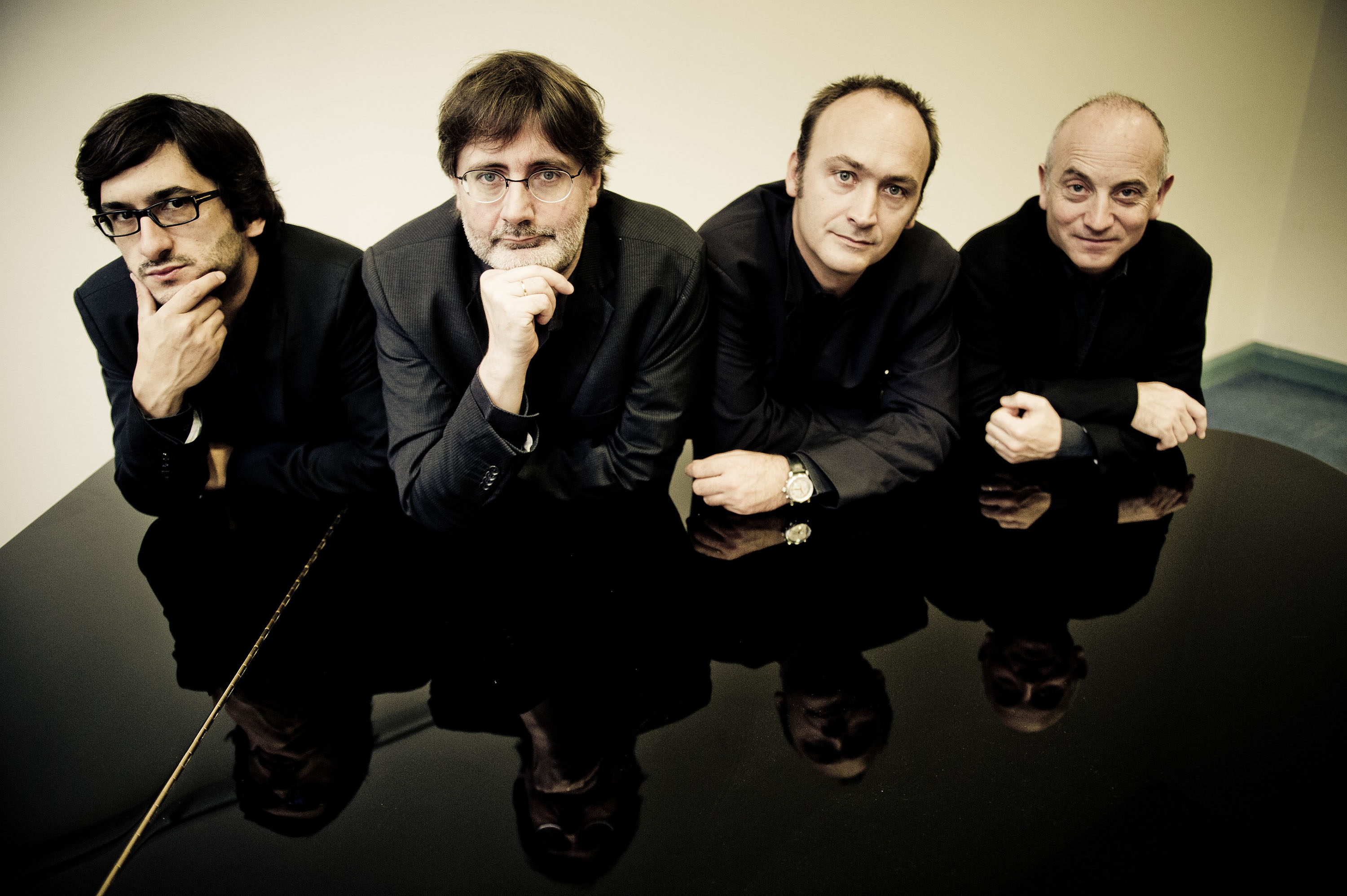Quatuor Danel notches up a quarter-century of music-making this year, and celebrates eleven years as artist-in-residence at the University of Manchester, where they work closely with the students, and with musicologists Barry Cooper and David Fanning. Since the group’s inception, they have performed widely, championing new music, and also offering exciting interpretations of the quartet repertoire from Mozart to Shostakovich. Manchester is lucky to have them as regular performers, since they are in demand at concert halls worldwide.
For a spring evening, and the closing concert of their current Manchester season, the quartet chose some traditional crowd-pleasers by Mozart and Beethoven. The setting was their usual haunt, the Cosmo Rodewald Hall at Manchester University’s Martin Harris Centre. This is an intimate space, well-suited to chamber music, so it was disappointing to note that the hall was only half-full. They began with Beethoven’s Opus 18 No. 5, an appetiser for the main course. The playfulness of Beethoven’s writing here, especially in the first allegro movement, was well served by the quartet’s instinctive ensemble playing. Their collective lightness of touch brought out the touches of humour in the piece, aided by some sly glances at the audience from leader Marc Danel. That lightness was balanced by the intensity that all four players brought to the final movement, which was attacked with great panache, and finished with a flourish.
Beethoven, of course, was an admirer of the second piece tonight, Mozart’s no. 18 quartet, K464. Indeed, it is clear that Beethoven to some degree modelled his quartet on the earlier work. According to Beethoven’s biographer Maynard Solomon, Beethoven said that in this quartet Mozart announced to the world “Look what I could produce, if only you were ready for it.” Marc Danel spoke briefly about the relationship between the two pieces before playing the Mozart. 
He sees a kind of symbiotic relationship, two geniuses influencing each other. That can’t really be the case, given their respective chronologies, but there is a strong connection between the two works that was clearly brought out in the Quatuor Danel’s dynamic interpretation. These players have been a unit for twenty-five years now, so it’s tempting to see them as a well-oiled machine: they do embody that idea, but that doesn’t do them justice. They are really an organic whole, each part sympathetic to the rest, working as one. It’s exhilarating to see them play so faultlessly, urging each other on with a nod or a glance. In the Mozart particularly, the enjoyment was clear to see, and the flourish with which they completed the long coda at the end conveyed their total involvement in the piece.
After the interval, the concert concluded with more Beethoven – his Opus 59 No. 3, one of the ‘Razumovsky’ quartets commissioned by the Russian ambassador in Vienna, who was himself a good amateur violinist, and who maintained a house string quartet at his residence. This was a great choice to finish, as it bursts with energy, and allowed the players to really show off their virtuosity. Beginning with the startlingly modern sounding dissonance that the programme note called a ‘harmonic fog’, the music slowly grows into an exuberant and brilliantly joyous expression of Beethoven’s middle period creativity. The players attacked this with tremendous vigour, with Marc Danel’s first violin a particularly bravura element. His tall, loose-limbed figure contorted, rose and fell on his chair as he flung himself into the action. He was well supported by the steady and thoughtful cello of Iovan Markovitch, whose pizzicato notes in the second movement pinged out satisfyingly over the audience. The group noted Beethoven’s command to play ‘molto allegro’, producing a blistering fourth movement that was exhausting just to watch. The last section was revisited for a well-deserved encore, concluding the quartet’s season in Manchester. They play a series of European dates before returning to Manchester in the autumn for an excitingly innovative series of concerts and collaborations. Anyone with an interest in brilliantly fresh interpretations of the classical and contemporary repertoire should watch out for them.
Reviewed: 22nd April 2016
Reviewer: Rob Spence
Picture: Ant Clausen


